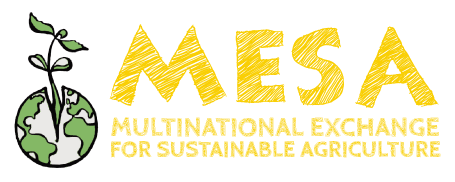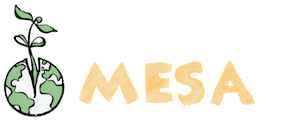<- Return to Listings | Copy | |
Host Training Plan
Codman Community Farms
| Name | Peter Lowy | [email protected] | |
| Steward(s) Selected | Joshua Mutarin Tinka – | ||
| Training Start Date | 04/17/2023 | Training End Date | 10/31/2023 |
| Steward Training Hours per Week | 40 | ||
| Compensation (Stipend or Wage) | Regular SAGE Stipend – $700/mo. (MESA sends to Steward via our monthly Host fee) | If Yes, how much/how often? | [1156] |
| Non-Monetary Compensation and Estimated Value | Housing. utilities, internet- $850 month / Food – $400 month / $150 – educational offerings |
| Name of your Workers’ Compensation Carrier | Peter Lowy |
| Will your Workers’ Compensation policy cover the Steward? | No, exempt |
| Number of Employees at training location | 10+ |
| Number of Interns/Trainees/Apprentices at training location | 2 |
| Annual Revenue | $0 to $3 Million |
[Phase 1]
| Phase Name | Orientation to our farm | ||
| Start Date of Phase | 04/17/2023 | End Date of Phase | 05/01/2023 |
| Primary Supervisor during this phase | Peter Lowy | Supervisor Title | Farm Manager |
| [email protected] | Phone Number | 19788355641 | |
| 1. Describe the Trainee/Steward’s role for this phase |
|
Trainee is to understand the overall functioning of the farm, greenhouse and gardens as well as location of fields and livestock we manage. |
| 2. Specific goals and objectives for this phase |
|
For trainees to settle into the life and rhythm of the farm, get to know the staff, and feel part of the community. |
| 3. Primary Supervisor’s qualifications |
|
Peter Lowy – farmer for over 20 years in both large mechanized farms and smaller organic production farms. Over 18 years of growing pasture-based livestock. Work overseas with Peace Corps as an agriculture worker. Formal education in organic farming at UC Santa Cruz. |
| 4. What plans are in place for the Trainee/Steward to participate in cultural activities while in the United States? |
|
We will include all trainees in local holiday and farm events and celebrations. At least 1x per month farm staff will host field trips for trainees to various interesting spots in the region. This is our 50th anniversary on the farm so we will have at least one event per month on the farm with sometimes hundreds of folks in the community participating. |
| 5. Specific knowledge, skills, or techniques to be learned during this phase? |
|
Learning all aspects of the basic functioning of farm operations. knowledge of field names, locations, soil types, production plan understanding, how to use tools and equipment, safety training |
| 6. How specifically will this knowledge, skills, or techniques be taught? Include methodology of training and chronology/syllabus. |
|
Hands-on training in fields, on and with tools and equipment. Some written instructions on planting methods. |
| 7. How will the Trainee/Steward’s acquisition of new skills and competencies be measured? |
|
Managers will report weekly to Farm Manager on trainees’ observed progress in mimicking tasks, communication skills, and ability to listen and observe. Trainees will attend weekly all staff meetings to share successes and challenges. |
| 8. Additional Phase Remarks (optional) |
[Phase 2]
| Phase Name | Phase 2 | ||
| Start Date of Phase | 05/01/2023 | End Date of Phase | 06/05/2023 |
| Primary Supervisor during this phase | Ian Trupin and Jared Martin | Supervisor Title | Market Garden Manager and Livestock Manager |
| [email protected] / [email protected] | Phone Number | 19788355641 | |
| 1. Describe the Trainee/Steward’s role for this phase |
|
Gaining a comfort level of the daily rhythm of life on the farm. Always be engaged in learning and observing. Actively asking questions about how and why we farm the way we do. |
| 2. Specific goals and objectives for this phase |
|
To become more independent and proactive in understanding daily farm activities. Trainees should feel part of the team. Understanding daily tasks and how to carry them out without specific direction. Gaining confidence in tasks. |
| 3. Primary Supervisor’s qualifications |
|
Peter Lowy – farmer for over 20 years in both large mechanized farms and smaller organic production farms. Over 18 years of growing pasture-based livestock. Work overseas with Peace Corps as an agriculture worker. Formal education in organic farming at UC Santa Cruz. |
| 4. What plans are in place for the Trainee/Steward to participate in cultural activities while in the United States? |
|
We will include all trainees in local holiday and farm events and celebrations. At least 1x per month farm staff will host field trips for trainees to various interesting spots in the region. This is our 50th anniversary on the farm so we will have many events on the farm they can participate in. |
| 5. Specific knowledge, skills, or techniques to be learned during this phase? |
|
For veggies: knowing how to read production schedules, understanding tasks involved in greenhouse growing (seeding, pricking out, transplanting, watering) and field plantings, and gaining proficiency with quality and speed. For Livestock: understanding chicks and chick brooder care, electric fencing setup, and moves, understanding how to move each type of livestock, feeding regiment knowledge for each species. |
| 6. How specifically will this knowledge, skills, or techniques be taught? Include methodology of training and chronology/syllabus. |
|
Hands-on and practical training. All skills will be acquired through active participation including discussions as to why we carry out certain tasks and their relation to our end goals, observing, engaging with managers and coworkers, and tackling day-to-day issues and problems that arise during active farming. |
| 7. How will the Trainee/Steward’s acquisition of new skills and competencies be measured? |
|
Self assessment and regular meetings with managers and staff. |
| 8. Additional Phase Remarks (optional) |
[Phase 3]
| Phase Name | Phase 3 | ||
| Start Date of Phase | 06/05/2023 | End Date of Phase | 10/31/2023 |
| Primary Supervisor during this phase | Peter Lowy | Supervisor Title | Farm Manager |
| [email protected] | Phone Number | 19788355641 | |
| 1. Describe the Trainee/Steward’s role for this phase |
|
Continuing to refine and gain confidence in all aspects of the department assigned. Asking questions, becoming more independent, carrying out tasks alongside visitors to the farm, feeling a part of the community by participating in events, gatherings and outings. |
| 2. Specific goals and objectives for this phase |
|
For veggies: Feeling confident in skills for managing greenhouse, transplanting techniques, pest ID, watering, harvesting and marketing, use of planning software and digital record keeping For livestock: understanding daily needs of livestock, working knowledge of our vast field network, feeling confident in moving livestock and fencing systems, confident in using tracking software |
| 3. Primary Supervisor’s qualifications |
|
Peter Lowy – farmer for over 20 years in both large mechanized farms and smaller organic production farms. Over 18 years of growing pasture-based livestock. Work overseas with Peace Corps as an agriculture worker. Formal education in organic farming at UC Santa Cruz. |
| 4. What plans are in place for the Trainee/Steward to participate in cultural activities while in the United States? |
|
We will include all trainees in local holiday and farm events and celebrations. In the summer and fall we have many events on the farm and the trainees are expected to participate in, help coordinate, and be a part of them all. Hopefully also helping out in our commercial kitchen in preparing farm-grown food to understand not only how we grow food on the farm but also prepare it for sale to the public (value added production enhances profitability). |
| 5. Specific knowledge, skills, or techniques to be learned during this phase? |
|
Veggies: independently caring for all plants in the greenhouse, knowing when to move plants outside to harden off before planting, when to setup and run irrigation in fields, confident in knowing when transplants are ready, when and how to harvest crops efficiently including food save produce washing practices and wash station proficiency. Livestock: recognizing when and how to shift all animals in their respective fields (pigs, turkeys, meat birds and laying hens, cattle, pigs), identifying health issues, trouble shooting equipment, confidence growing chicks in brooder from arrival to move to field, fencing, equipment usage. |
| 6. How specifically will this knowledge, skills, or techniques be taught? Include methodology of training and chronology/syllabus. |
|
Hands-on and practical training. All skills will be acquired through active participation including discussions as to why we carry out certain tasks and their relation to our end goals, observing, engaging with managers and coworkers, and tackling day-to-day issues and problems that arise during active farming. |
| 7. How will the Trainee/Steward’s acquisition of new skills and competencies be measured? |
|
Self-assessment and regular meetings with managers and staff. Managers will observe and provide daily and weekly feedback to correct work errors and provide corrective measures to improve outcomes. |
| 8. Additional Phase Remarks (optional) |

